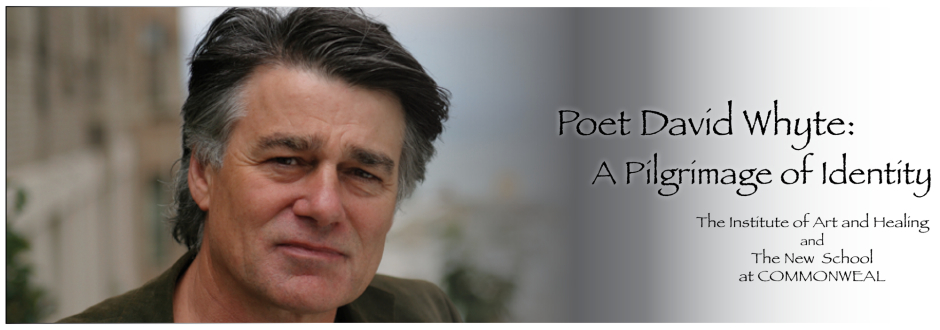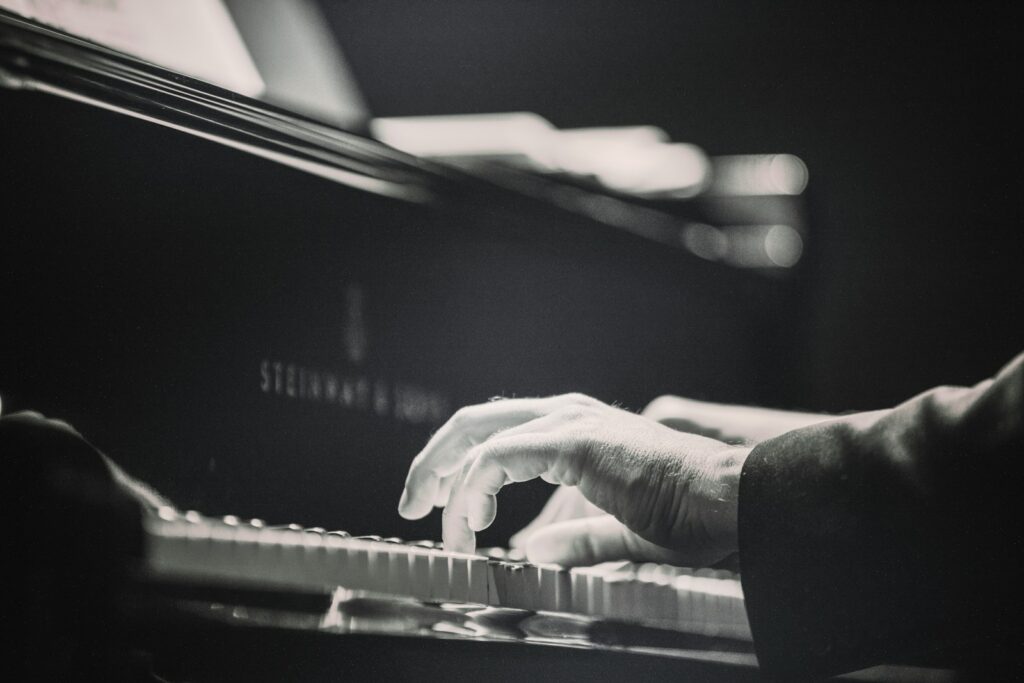
Ronny Whyte, a debonair New York cabaret singer and pianist who brought a Cole Porter vision of yesteryear Manhattan elegance to life, died on August 19 in Fredon, a town in northern New Jersey. He was 88. His passing marks the end of an era for many who cherished the intimate, sophisticated world he so masterfully created through his performances, leaving behind a legacy as a premier interpreter of the Great American Songbook.
Like his friend and mentor Bobby Short, Mr. Whyte exuded a haute style while imbuing American standards with a distinctive grace and wit. His artistry was more than just musical performance; it was an act of conjuring, transporting audiences to a bygone era. Stephen Holden, in a 1990 profile in The New York Times, captured this essence perfectly, noting that Mr. Whyte’s performances evoked “a nighttime world of tinkling pianos, rustling gowns and tipsy people.”
This article delves into the remarkable life and career of Ronny Whyte, tracing his journey from a log cabin in Seattle to the most revered cabaret stages of Manhattan and beyond. We will explore the various facets of his artistry, his profound dedication to music, his early struggles, and the influences that shaped his unique and enduring contribution to American culture, all of which culminated in a career that truly personified elegance.

1. **A Premier Interpreter of the Great American Songbook**Ronny Whyte stood as a preeminent figure in the world of American popular music, lauded for his distinctive interpretations of the Great American Songbook. His performances were not merely renditions of classic tunes; they were meticulous evocations of a sophisticated past, bringing to life the lyrical and melodic richness that defined an era. He channeled a “Cole Porter vision of yesteryear Manhattan elegance,” transforming each song into a vibrant tableau of refined emotion and timeless charm.
His mastery lay in his ability to infuse these beloved standards with both grace and wit, a delicate balance that set him apart. Whether performing works by George and Ira Gershwin, Jerome Kern, or Rodgers and Hart, Mr. Whyte’s touch was unmistakable. He approached each piece with an understanding that transcended mere technical proficiency, delving into the emotional core and historical context of the compositions.
This deep engagement allowed him to honor the original intent of the songwriters while simultaneously making the material his own. His artistry ensured that these gems of American music continued to resonate with contemporary audiences, bridging generations through the enduring power of classic melodies and intelligent lyrics. Through his interpretations, he became a living conduit to the heart of American musical heritage.

2. **The Embodiment of Manhattan Cabaret Elegance**For decades, Ronny Whyte’s natural habitat was the intimate Manhattan cabaret, a setting where his sophisticated style and nuanced performances truly thrived. These venues, with their hushed atmospheres and attentive audiences, provided the perfect backdrop for his artistry, allowing him to forge a direct, personal connection with those who came to listen. His presence alone seemed to elevate these spaces, transforming them into sanctuaries of timeless musicality.
He graced the stages of some of New York City’s most legendary establishments, including the storied Oak Room at the Algonquin Hotel, Rainbow and Stars in Rockefeller Center, the elegant St. Regis Room of the St. Regis Hotel, and the venerable Bemelmans Bar in the Carlyle hotel. These were not just performance spaces; they were extensions of his artistic persona, places where his vision of a “nighttime world of tinkling pianos, rustling gowns and tipsy people” came vividly to life.
Indeed, Mr. Whyte’s appeal was such that he was often described as perfectly cast in the role of an “upscale Manhattan version of Billy Joel’s ‘Piano Man,’” as Stephen Holden once observed. This comparison, while evoking a popular image, underscored his unique ability to embody a certain New York archetype — a suave musician with an innate understanding of the city’s sophisticated rhythms and its enduring romantic spirit, making him an icon of the cabaret scene.
3. **A Repertoire of Thousands: From Gershwin to Jazz Age Novelties**Ronny Whyte’s command of the Great American Songbook was truly prodigious, with his repertoire numbering in the thousands. This vast collection allowed him to curate performances that were both deeply familiar and delightfully surprising, catering to the tastes of seasoned connoisseurs while also introducing new listeners to overlooked treasures. He traversed the landscape of American music with unparalleled breadth and depth.
At the core of his musical offerings were the enduring masterpieces by legendary composers such as George and Ira Gershwin, Jerome Kern, and the prolific team of Rodgers and Hart. These were the foundational gems that Mr. Whyte polished and presented with his characteristic elegance, ensuring their continued resonance. His interpretations were imbued with a profound respect for the original compositions, yet always carried his distinctive stylistic signature.
Beyond these pillars, Mr. Whyte also championed personal favorites like Cy Coleman, Bart Howard, and the songwriting team of Tommy Wolf and Fran Landesman, introducing their works to wider audiences. He possessed a unique talent for lightening the mood, often sprinkling his sets with obscure Jazz Age novelty songs and comic numbers, such as the British duo Flanders and Swann’s whimsical “Have Some Madeira M’Dear,” showcasing his versatility and playful spirit. This expansive range ensured his performances were always engaging and memorable.

4. **His Early Struggles and the Piano Bar Era**Despite the elegant air and sophisticated persona that defined his later career, Ronny Whyte’s journey to becoming a celebrated cabaret singer was marked by years of arduous work, often referred to as “paying his dues.” He spent considerable time in the gritty, demanding environment of old-time piano bars, a stark contrast to the refined venues he would eventually headline. These formative years were crucial in honing his craft and resilience.
James Gavin, author of “Intimate Nights: The Golden Age of New York Cabaret,” vividly described this period as toiling six hours a night, six days a week, in a “hard-boiled, Mafia-riddled, smoke-infused atmosphere.” It was a challenging, often thankless grind, where perseverance was paramount and the rewards were often intangible, yet it provided an invaluable education in live performance and audience engagement under demanding conditions.
Reflecting on this era in a 2009 interview with The Buffalo News, Mr. Whyte acknowledged the difficulty but emphasized its intrinsic value. He stated, “It was a grind, but it was great, because I was doing what I loved, learning.” This sentiment highlights his unwavering dedication to music and his profound appreciation for the process of artistic development, even amidst the most trying circumstances of his early career.
In a 1990 interview with The Times, Mr. Whyte recalled a vibrant, albeit raw, scene from the 1960s, noting, “there must have been 50 or 60 piano bars in New York.” He described an environment where “people stayed out later and drank more than they do now. At 4 in the morning, they’d still be there, stoned out of their minds, almost falling asleep.” This evocative imagery paints a picture of a bygone New York, a demanding crucible that forged the refined artist he would become.
Read more about: The Highest-Paid Cameos in Recent TV History: Unpacking Hollywood’s Priciest Surprise Appearances
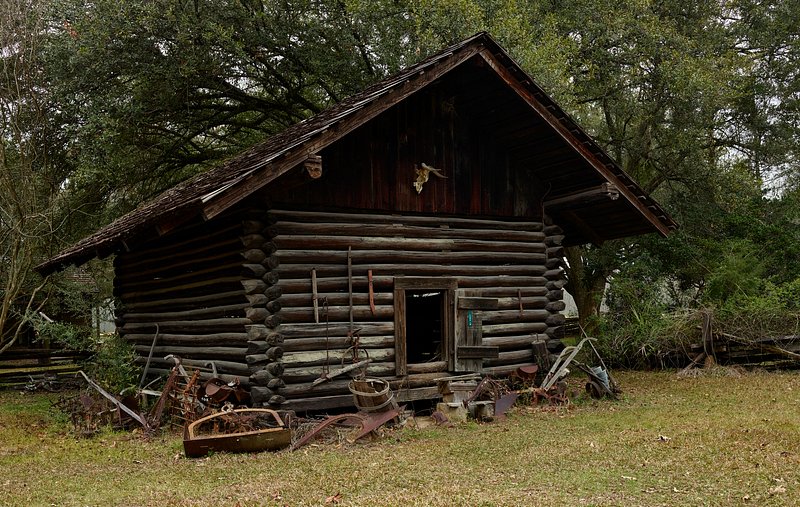
5. **From Log Cabin to Manhattan: His Early Life and Musical Roots**Ronald Gene Bangerter, who would later be known as Ronny Whyte, was born on May 12, 1937, in Seattle, Washington. He was the eldest of four children born to Rodney Bangerter, a mechanic and gas station owner, and Claire (Hickson) Bangerter. His early childhood was marked by an unconventional beginning that would seem a world away from the glamorous Manhattan cabarets he would later inhabit.
For his first six years, Mr. Whyte lived in a log cabin built by his father on the outskirts of Seattle. He would later recount vivid, almost idyllic memories of petting deer on his way to the outhouse, a pastoral scene that sharply contrasted with the urban sophistication that would come to define his adult life. This unique upbringing provided a foundation far removed from the bustling city that would become his artistic home.
Music was an integral part of his earliest years, thanks to his mother, Claire, who was a pianist. It was she who provided Ronald with his initial introduction to the world of music. In a 2018 interview with Cabaret Scenes magazine, Mr. Whyte fondly recalled, “As soon as I could speak, my mother had me singing,” indicating a natural and early immersion into vocal performance.
He began classical piano lessons at the age of eight, laying a formal groundwork for his musical talents. Despite growing up Mormon, he further honed his skills by playing the organ at a local Baptist church, demonstrating an early adaptability and dedication to his craft that transcended denominational boundaries. These diverse musical experiences in his youth contributed significantly to the breadth of his later repertoire and performance style.

6. **Military Service, New York Dreams, and a Name Change**After graduating from Lincoln High School in Seattle in 1955, Ronny Whyte embarked on a path that would lead him far from his childhood home. He enlisted in the Air Force, where he continued to cultivate his musical talents by playing in a military dance band. This period of service, while practical, also served as a bridge to his future artistic aspirations.
Stationed in Maine, he spent his weekends off making pilgrimages to Manhattan. These trips were not merely recreational; they were exploratory missions into the heart of American culture. He would devour issues of The New Yorker, immersing himself in the sophisticated literary and artistic world of the city, and catch Broadway musicals, fueling his nascent passion for the stage.
Crucially, he also took in the vibrant jazz scene on 52nd Street, which at the time was a thriving hotbed of musical innovation. These excursions ignited a profound desire to make New York his permanent home and the center of his artistic endeavors, foreshadowing his eventual move to the city and his embrace of its dynamic musical landscape.
Upon his discharge from the Air Force, he settled in New York City, making a pivotal decision that shaped his career trajectory. He turned down a scholarship offer from the prestigious Juilliard School, choosing instead to pursue his other passion—acting—through the American Theater Wing, the nonprofit organization renowned for sponsoring the Tony Awards. This choice underscored his diverse artistic interests and his commitment to a multifaceted career in the performing arts.
It was also during this period that Ronald Gene Bangerter made a strategic decision to adopt a stage name. Concluding that his birth surname “lacked the sparkle for show business,” he chose “Whyte,” a more exotic variant of his father’s middle name, White. This subtle yet significant change reflected his burgeoning identity as a performer, one who understood the importance of presentation and presence in the competitive world of New York entertainment.
Read more about: Your Garage, Your Rules: 13 Ridiculously Easy Cars to Maintain and Repair Yourself for the DIY Enthusiast

7. **Mentorship and Friendship with Bobby Short**Ronny Whyte’s journey in the sophisticated world of cabaret was significantly illuminated and shaped by his enduring friendship and mentorship with the legendary Bobby Short. Short, widely recognized as the world’s most famous saloon singer, provided not only inspiration but also practical wisdom that guided Whyte throughout his career. Their bond blossomed on the bustling Manhattan nightclub circuit, a fertile ground for the exchange of artistic ideas and professional camaraderie.
Mr. Whyte often recalled how Mr. Short epitomized the kind of performer he aspired to be, noting that “Bobby performed with enormous energy and panache and put himself together impeccably.” This admiration for Short’s stage presence and meticulous grooming extended beyond mere observation; it became a direct lesson for Whyte on the importance of presentation. Short’s elegant demeanor and charismatic delivery served as a blueprint for the aspiring cabaret artist.
Beyond the stylistic elements, Bobby Short imparted invaluable, pragmatic advice crucial for thriving in the competitive New York entertainment scene. Mr. Whyte fondly remembered Short teaching him “how to dress, how to build a following with a mailing list before email, and that if you’re performing at night, you must nap in the afternoon.” These insights were far more than simple tips; they were a masterclass in self-management and audience cultivation, foundational elements for a sustained career in a demanding industry.
This mentorship fostered a lineage of elegance within the cabaret world, where the torch of sophisticated American standards was passed from one master interpreter to another. Short’s influence helped cement Whyte’s commitment to a high standard of artistry and professionalism, ensuring that the legacy of refined musical performance continued to flourish in Manhattan’s most intimate venues, a testament to their profound artistic connection.

8. **A Prolific Recording Artist and Enduring Discography**Over the course of his distinguished career, Ronny Whyte established a significant recorded legacy, a testament to his prolific artistry and unwavering dedication to music. He released an impressive twenty albums, each capturing his unique interpretations of the Great American Songbook and showcasing his remarkable talents as a pianist and vocalist. These recordings offer a comprehensive chronicle of his evolution as a performer and his consistent pursuit of musical excellence.
His discography began in 1967 with the release of “The Songs and Piano of Ronny Whyte,” an album that introduced his distinctive style to a wider audience. This inaugural effort set the stage for decades of recording, firmly establishing his presence in the jazz and cabaret scenes. Each subsequent album further cemented his reputation as a masterful interpreter, beloved for his elegant phrasing and sophisticated musicality.
Among his acclaimed works, the album “All in a Night’s Work” (1994) received particular recognition, earning the esteemed title of “Jazz Album of the Week” from The New York Times. Such accolades underscored the critical appreciation for his craft, highlighting his ability to infuse classic material with fresh vitality and emotional depth. His commitment to recording ensured that his artistry would reach listeners far beyond the intimate confines of Manhattan’s cabarets.
His recording career spanned over fifty years, culminating in 2019 with his final album, “Whyte Witchcraft: Songs of Cy Coleman.” This dedication to documenting his work, including eleven CDs for Audiophile, ensured that his interpretations of countless beloved standards, as well as lesser-known gems, would be preserved for future generations. His discography stands as a vital contribution to the archives of American popular song, showcasing the breadth and depth of his musical journey.
Read more about: A Tragic End for a Nashville Legend: Unpacking the Life, Legacy, and Untimely Death of Grammy-Winning Songwriter Brett James
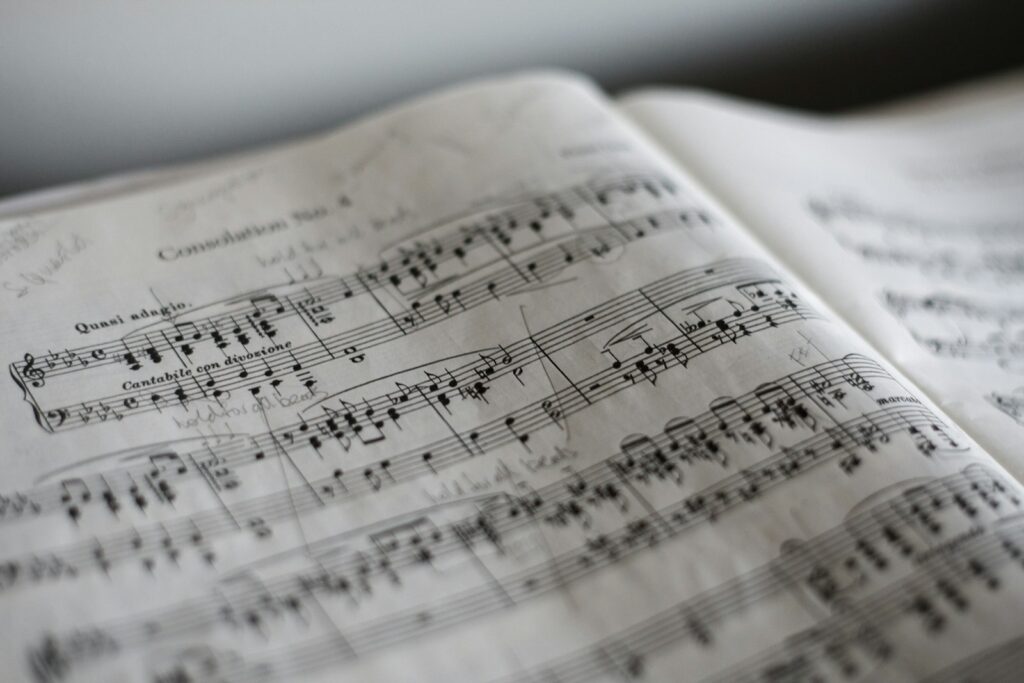
9. **Acclaimed Songwriter and Award-Winning Composer**Beyond his celebrated prowess as a singer and pianist, Ronny Whyte was also an accomplished songwriter, contributing his own original works to the rich tapestry of American music. His talent extended to crafting compelling lyrics and melodies that resonated with both critics and audiences, earning him prestigious recognition within the industry. This dual role as interpreter and creator showcased the full spectrum of his musical genius.
One of his most notable songwriting achievements was providing lyrics for Ettore Stratta’s 1980 instrumental, “Forget the Woman.” This collaboration resulted in a poignant and memorable piece that would find a prominent place in music history. The song’s emotional depth and lyrical sophistication caught the attention of none other than Tony Bennett, a titan of American popular music, further solidifying its stature.
Mr. Bennett, renowned for his discerning taste and ability to breathe new life into classic songs, included “Forget the Woman” on his critically acclaimed 1986 comeback album, “The Art of Excellence.” This endorsement from such an iconic figure was a significant milestone for Whyte, underscoring the quality and universal appeal of his songwriting. The song also earned him an ASCAP Award, a testament to its artistic merit and commercial success, marking a pivotal moment in his career as a lyricist.
His compositional talents were again recognized when his music for “The Party Upstairs” won the MAC Award for Best Song of 2006. This award, from the Manhattan Association of Cabarets and Clubs, celebrated his continued contributions to the cabaret and jazz world, demonstrating that his creative spark remained vibrant throughout his career. Ronny Whyte’s songwriting added another essential dimension to his multifaceted legacy, ensuring his voice was heard not only through his performances but also through his original compositions.
Read more about: Gavin Creel, Tony-Winning Luminary of Broadway, Dies at 48: A Legacy of Talent and Advocacy Remembered
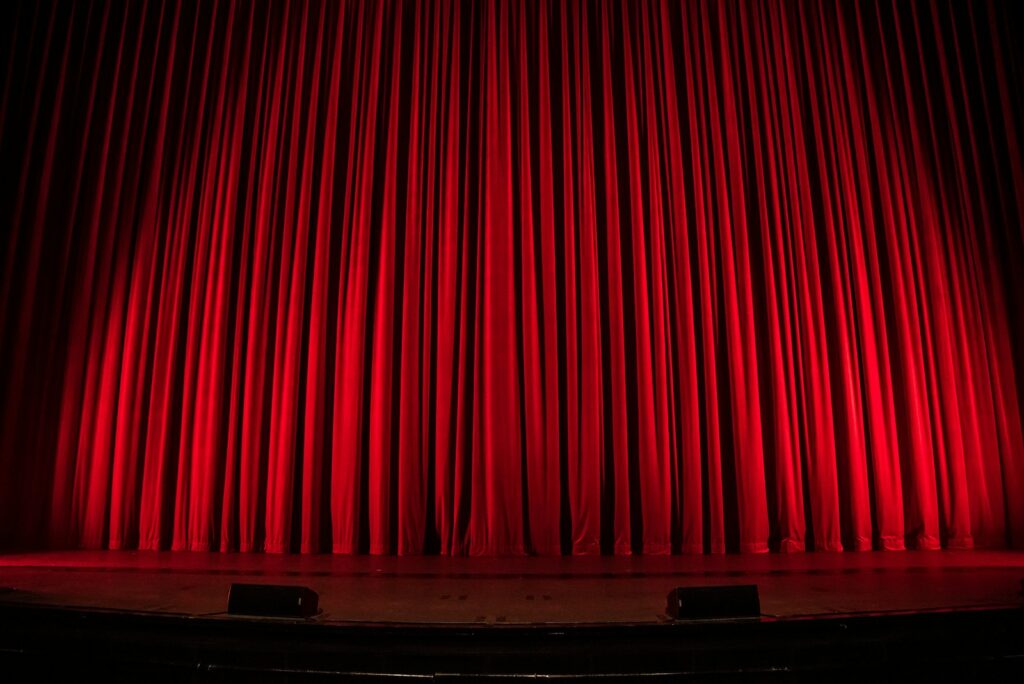
10. **Leadership in Jazz Showcases and Diverse Theatrical Roles**Ronny Whyte’s commitment to the jazz community extended beyond his performances, notably through his dedicated leadership of Midday Jazz Midtown. For over fourteen years, he spearheaded this regular jazz showcase at St. Peter’s Church in Manhattan, providing a crucial platform for both established and emerging musicians. This initiative underscored his dedication to fostering and celebrating live jazz, creating a vibrant hub for musical innovation in the heart of New York City.
His artistic versatility also saw him frequently embrace the stage as an actor, demonstrating a passion for theater that ran parallel to his musical pursuits. After settling in New York, he chose to study acting through the American Theater Wing, a decision that would open doors to numerous theatrical opportunities. He graced summer stock productions with his presence, taking on a variety of challenging and iconic roles.
Mr. Whyte’s theatrical repertoire was remarkably diverse, showcasing his range as a performer. He took on the role of Bobby in Stephen Sondheim’s seminal musical “Company,” a complex character demanding both vocal and dramatic skill. His talents also led him to classical theater, where he portrayed Oberon in Shakespeare’s enchanting “A Midsummer Night’s Dream,” displaying a remarkable adaptability across genres.
Further highlights of his stage career included playing Joey in the classic Rodgers and Hart musical “Pal Joey,” a role that perfectly blended his singing and acting abilities. He also appeared as Vernon in “They’re Playing Our Song,” cementing his reputation as a versatile stage performer. Moreover, he spent two years performing Off-Broadway in the hit musical “Our Sinatra” and joined its two national big band tours, visiting over 90 cities across the country, further expanding his reach and impact. His prominence in the jazz world was additionally acknowledged through two features at New York’s JVC Jazz Festival and his induction into the esteemed Cabaret Jazz Hall of Fame.

11. **Expansive International Engagements and Concert Appearances**While Ronny Whyte was a quintessential New York cabaret artist, his sophisticated artistry and musical charm resonated far beyond the intimate clubs of Manhattan. Throughout his illustrious career, he embarked on extensive international tours, sharing his unique interpretations of American standards with appreciative audiences across the globe. His talent truly transcended geographical boundaries, making him an ambassador for the Great American Songbook.
His international itinerary included major engagements in some of the world’s most culturally vibrant cities. He captivated audiences in Paris, a city renowned for its appreciation of jazz and sophisticated music, and enchanted listeners in Tokyo, where his elegant style found a warm reception. Further demonstrating his global appeal, he performed in Tel Aviv, Sao Paolo, Caracas, and Johannesburg, reaching diverse cultures with the timeless beauty of American popular music.
Beyond the intimate cabaret setting, Mr. Whyte also made significant appearances in prestigious concert halls, often alongside his acclaimed Ronny Whyte Trio. These engagements included performances at New York’s venerable Carnegie/Weill Hall and Town Hall, as well as Washington’s Corcoran Gallery and the Mellon Jazz Festival in Philadelphia. Such venues provided a grander stage for his nuanced performances, allowing a wider public to experience his artistry.
His versatility also extended to symphonic collaborations, where he made frequent guest appearances with symphony orchestras. In these grand settings, he performed his unique arrangement of “Porgy & Bess” for Jazz Trio & Orchestra, as well as other beloved Gershwin works. These orchestral engagements showcased his ability to adapt his intimate style to larger formats, further solidifying his reputation as a musician of remarkable depth and breadth, ensuring his lasting impact on a global scale.
Read more about: Ella Jenkins, The First Lady of Children’s Music, Dies at 100, Leaving an Unparalleled Legacy of Song and Connection

12. **An Enduring Legacy: A Holdout for Timeless Tradition**As the decades unfolded and popular music tastes shifted dramatically, Ronny Whyte remained a steadfast “holdover and a holdout against ever-shifting pop tastes,” maintaining his unwavering dedication to the Great American Songbook. His commitment to elegance and sophistication in music provided a comforting anchor for audiences amidst an ever-changing cultural landscape. He personified a timeless tradition, a living link to a bygone era of musical artistry.
While deeply rooted in classic material, Mr. Whyte was not entirely impervious to contemporary appeal, occasionally sprinkling his sets with crowd-pleasers like “Rainbow Connection” or, indeed, the iconic “Piano Man.” This judicious inclusion of modern favorites demonstrated his understanding of audience engagement, yet never at the expense of his core artistic integrity. He navigated the balance between honoring tradition and acknowledging present-day preferences with grace.
He often encountered audience members requesting “that Linda Ronstadt song,” a reference to her popular 1983 recording of the Gershwins’ “I’ve Got a Crush on You.” Such moments highlighted how his performances introduced classic songs to new generations, many of whom were hearing these timeless melodies for the first time. As he eloquently put it in a 1990 interview with The Times, “There’s a whole generation for whom ‘Night and Day’ and ‘Dancing in the Dark’ are brand new,” underscoring the enduring relevance of his chosen repertoire.
Beyond the spotlight, Ronny Whyte led a rich and fulfilling life, embracing passions outside of music. He was an avid tennis player, a devoted gardener, and a gourmet cook, pursuits that reveal a vibrant personality behind the debonair stage persona. His life was further enriched by his deep connection with his husband, John Kevin Burns, whom he shared for over forty years, a personal bond as profound as his artistic one.
Mr. Whyte is survived by his loving brother, Karl, and his sister, Susan Parise, alongside his cherished friends, Ben Cassara and Dixie Rich, who were an integral part of his life. His peaceful passing on August 19, 2025, at the age of 88, in Fredon, New Jersey, due to bone cancer at a hospice facility, marked the end of an era. His remarkable life, a blend of profound artistry and personal grace, leaves an indelible mark on the world of cabaret and American music, an enduring testament to an artist who truly personified elegance.
In reflection, Ronny Whyte’s journey from a log cabin in Seattle to the revered stages of Manhattan and beyond was a testament to his singular vision and unyielding dedication. He didn’t just perform songs; he curated an experience, transporting his audiences to a world where elegance, wit, and timeless melodies reigned supreme. His passing leaves a void, but his extensive discography, his mentorship, and the countless memories of his incandescent performances will ensure that the “nighttime world of tinkling pianos, rustling gowns, and tipsy people” he so masterfully conjured will continue to resonate for generations to come. He was, and remains, a true icon of sophisticated American artistry, a man who truly understood the enduring power of a beautifully sung song.

